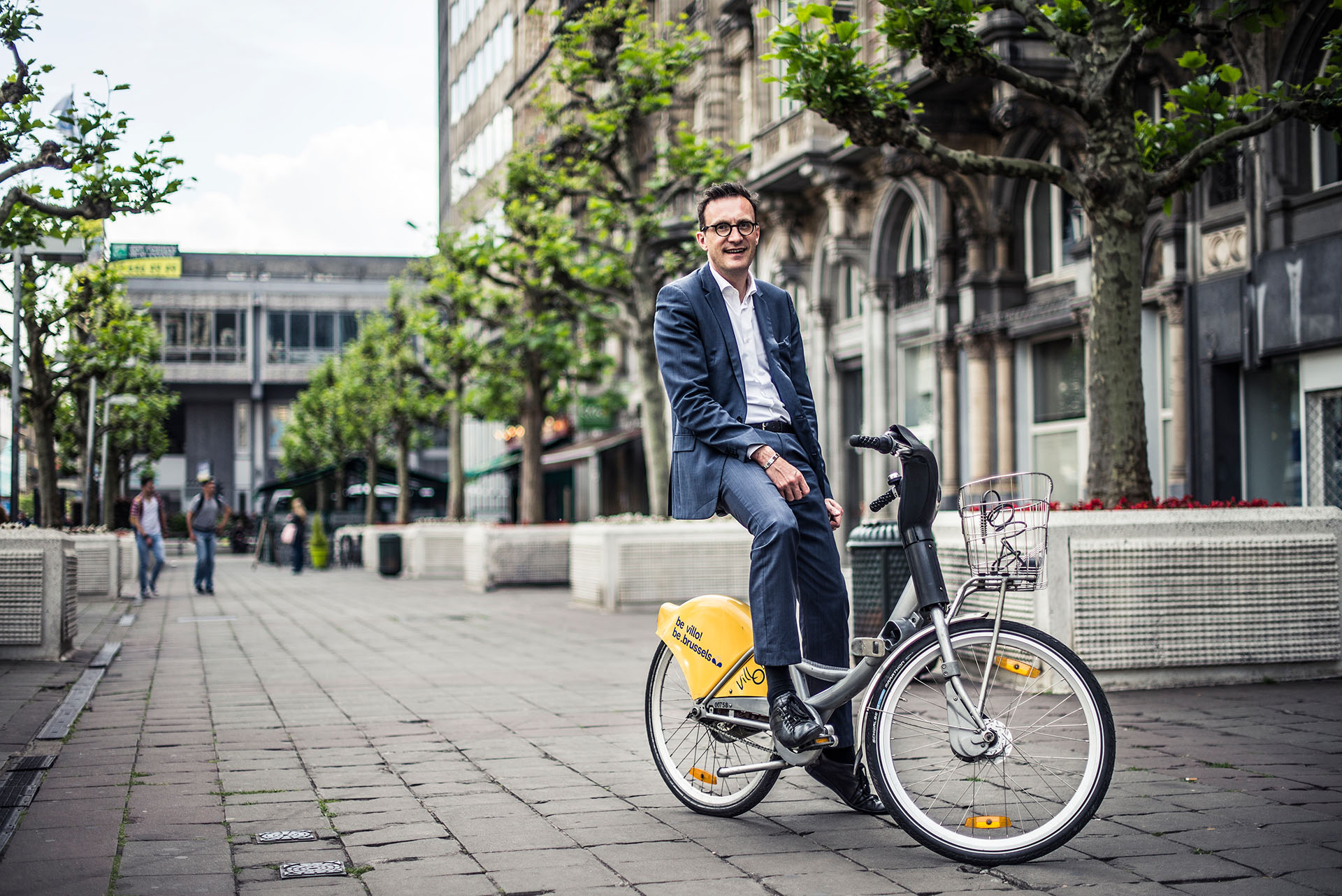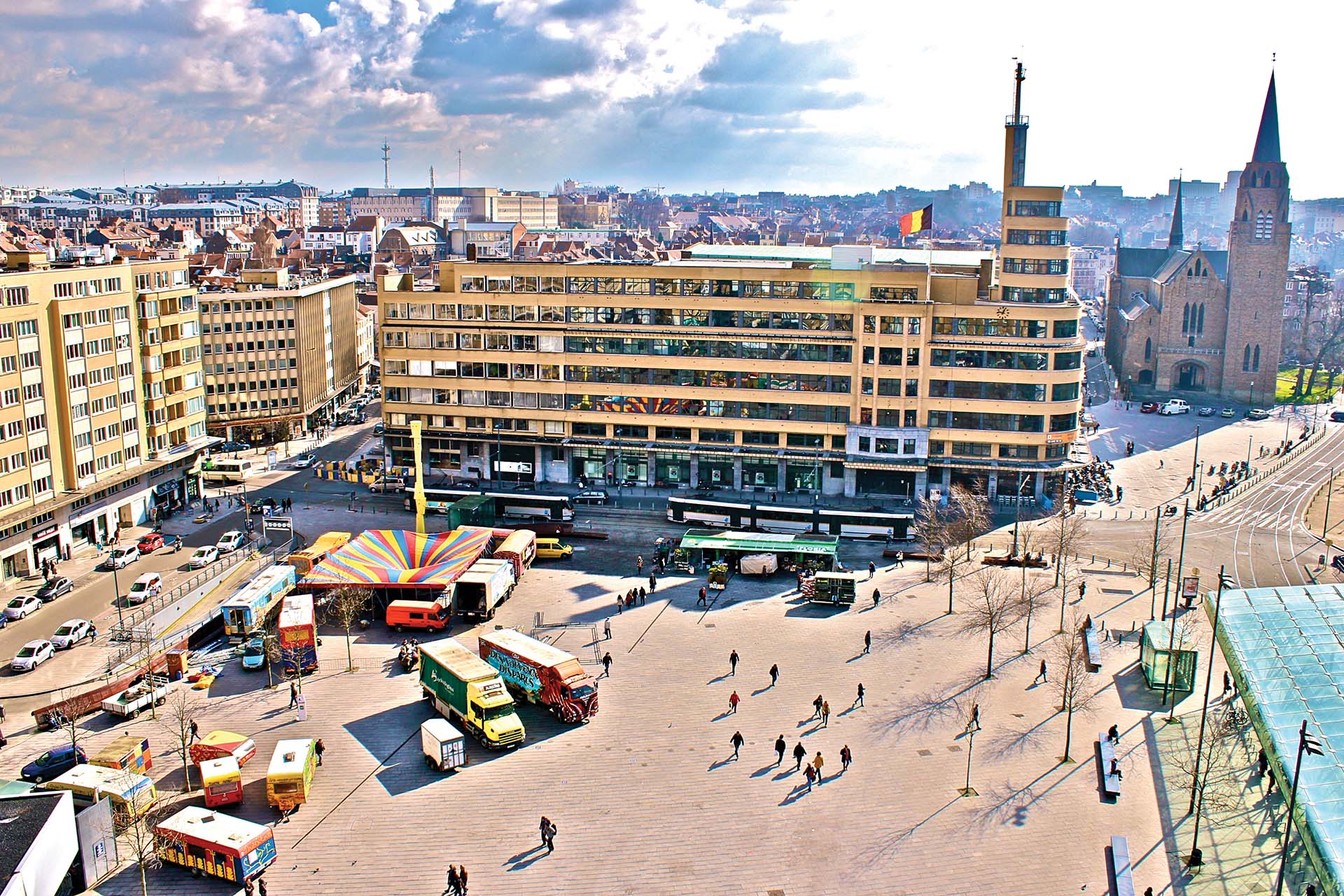Q&A: Pascal Smet Minister of Mobility, Brussels Capital Region
You have been in charge of Mobility for Brussels Capital Region in 2004-2009 and now for 2014-2019. What has changed in Brussels during these 15 years?
Brussels has many mobility challenges: for starters, there are more and more cars. There are some basic factors that are at play: subsidizing 250,000 daily commuters, federal support for company vehicles, tax incentives for living in the countryside rather than in the city (income is more expensive in the city) and savings in public transport outside Brussels. In its drive for modernity in the 1960s, our city attracted too many cars and gave them free passage everywhere. That dominance of car has had a very large impact on the quality of life in Brussels.
There have been, however, quite a few changes: more and more people ride bicycles around the city. Many Brussels residents (37%) move on foot. Investments in public transport take move more and more people by tram, metro and bus. This year marks the sixteenth edition of the car-free Sunday. The car-free Sunday in Brussels contributed greatly to changing the attitudes and mentalities about how we move among citizens and politicians. This initiative has led to the permanent establishment of car-free areas in our capital, such as Flagey, some central avenues and soon Place Dumon and Mirror Square.
In my first term as a minister, we laid the foundation for more sustainable urban development. This term, we are working more on the complexities of implementation.
What is the best combination for improving sustainable mobility in Brussels? What are the main ‘green’ elements of your policy?
Brussels needs a new balance: to go from a city for cars to a city for people. Brussels has 400,000 commuters each day of which 250,000 come in and out of the city with their own car. The result is endless traffic jams – this needs to stop.
The defunct Reyers Viaduct and the opening of central boulevards are just the beginning of a broad movement where we return the city to the people and invest in renovating public spaces. A meeting place for visitors and locals alike between Louise and Porte de Namur and a car-free zone on the Schuman roundabout and around the European institutions are the following projects.

And we must go beyond these steps: in the next 10 years, we will invest over €5 billion for upgraded subways, more trams and cleaner buses that will better serve and connect neighbourhoods. Families will also benefit from discounts on school passes, so that more children can take the bus. We are also creating 80km of new bike paths around the small ring where parked cars will be moved to make room for trees, cyclists and walkers.
There will be new transit parking areas near Metro and RER stations on the edge of the region, so that commuters and visitors can more easily park their car and more efficiently take public transport. At the national level, we now charge trucks per kilometer in 2016. We will also implement a low emission zone starting in 2018 to support the city-friendly goods distribution with the aim of having fewer cars and less truck traffic in the downtown area, thus decreasing congestion and air pollution.
What 3 mobility projects stand out most for you?
I particularly like the renovation of Place Flagey for pedestrians with a bicycle infrastructure, fountains, lighting, new bus stops, a large glass canopy that covers the tram, new street furniture and trees. This created a new meeting place for young and old in Ixelles.
The Mirror Square in Jette will be completely car-free in October 2018. Under the square, an underground car park with 199 places will be built. The north of Brussels gets so at an important meeting place. Tram 9 will connect Mirror Square with Heysel and Simonis. The quality of life and attractiveness of the district will be enhanced most certainly.
Villo! is the public bike rental service of Brussels. There are 360 stations with five thousand bikes in use. In December 2015, 8 million journeys had been registered since the beginning of the Villo! service in 2009.

How do you see mobility developing more sustainably in Brussels by 2030?
I hope that Brussels 2030 is truly a city for people; a city that thinks for the people; a city that invites you to walk, cycle, play and live more freely. People will no longer be interested in having an own car. In 15 years, all these cars will be replaced by automatic shared vehicles that you can book through applications. No stationary vehicles but optimum utilization of the vehicles and space. For many inhabitants, the hills of Brussels are still a barrier to take the bike. In 2030, almost everyone will be moving with an electric bike.